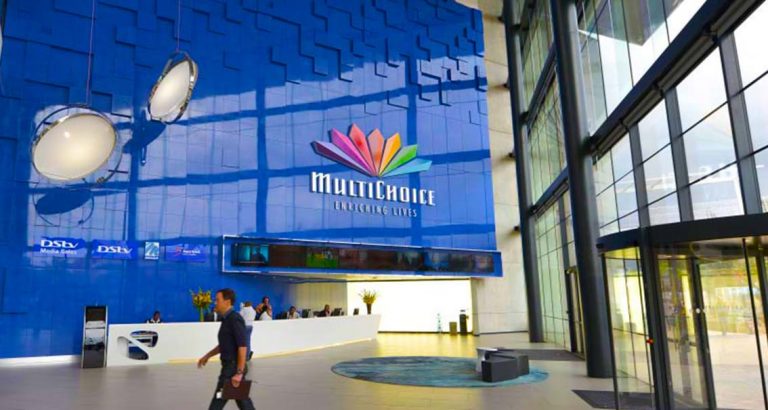
A Federal High Court in Abuja has thrown out the suit filed by MultiChoice Nigeria Limited in a bid to shield its controversial DStv and GOtv price hikes from regulatory scrutiny, ruling that the case amounted to an abuse of court process.
Justice James Omotosho delivered the judgment on Thursday, weeks after hearing arguments from the pay-TV provider and the Federal Competition and Consumer Protection Commission (FCCPC). He found that MultiChoice had filed its case despite being aware of a similar ongoing suit brought by consumer rights lawyer Festus Onifade. That case, also before the Federal High Court but in a different division, deals with the same issues of pricing and alleged abuse of dominance.
“The plaintiff in this instant suit could have ventilated his grievance before the previous pending suit,” Omotosho ruled. “This is an abuse of court process.”
Register for Tekedia Mini-MBA edition 19 (Feb 9 – May 2, 2026).
Register for Tekedia AI in Business Masterclass.
Join Tekedia Capital Syndicate and co-invest in great global startups.
Register for Tekedia AI Lab.
FCCPC Overreached Its Powers – But Still Wins
Although the judge sided with MultiChoice on some legal points, particularly that the FCCPC had overstepped its bounds by attempting to halt price increases without a completed investigation, he still dismissed the suit on the grounds of duplicity.
Omotosho acknowledged that while the FCCPC, as a federal agency, has the authority to investigate anti-competitive practices, it lacks the statutory power to stop a company like MultiChoice from setting prices in Nigeria’s deregulated economy.
“FCCPC is not vested with the power to suspend the price hike of an entity before conducting an investigation,” he ruled. “Nigeria operates a free market economy, and only the President can approve price regulation through a legally backed instrument or price control board.”
Despite the sharp rebuke of the FCCPC’s early interference, the case ultimately failed because it was improperly filed.
Background to the Case
In February 2025, MultiChoice announced another round of price hikes for its DStv and GOtv packages, citing inflation and operational costs. The new rates, which took effect March 1, included a 25% increase for DStv Compact (from N15,700 to N19,000) and a 20% increase for DStv Premium (from N37,000 to N44,500). The GOtv Supa Plus package also saw a rise from N15,700 to N16,800.
The announcement provoked a wave of public backlash, with many Nigerians pointing to the limited competition in the pay-TV market. In response, the FCCPC summoned MultiChoice for an investigative hearing and warned that failure to justify the hikes could lead to sanctions.
MultiChoice pushed back, filing a suit in March to stop the FCCPC from taking any steps against it based on a letter dated March 3, 2025. The company argued that the Commission had no legal authority to demand price controls or regulatory approval for service adjustments.
Lead counsel for MultiChoice, Moyosore Onigbanjo (SAN), told the court that price regulation falls outside the FCCPC’s statutory mandate. He insisted that Nigeria’s free market principles allow companies to set prices based on commercial considerations without needing regulatory clearance.
FCCPC Defends Mandate to Curb Market Abuse
The FCCPC’s legal team, led by Prof. Joe Agbugu (SAN), maintained that the Commission was not attempting to fix prices but to investigate MultiChoice’s dominant position and whether its actions violated market fairness.
Agbugu pointed to consumer complaints and argued that unchecked price increases without market competition could constitute abuse of dominance, which the FCCPC is empowered to address under its establishing law.
However, the court was unconvinced by this line of reasoning, at least regarding the timing of FCCPC’s intervention. Justice Omotosho ruled that an investigation must precede any directive or sanction, and the Commission had acted prematurely.
Even so, he concluded that the broader question of market dominance should have been addressed in the already pending suit filed by Onifade, making the MultiChoice action redundant.
Why is MultiChoice Targeted?
Economists have questioned the motive behind the FCCPC’s exclusive focus on MultiChoice, despite similar pricing moves by other content platforms and pay-TV providers operating in Nigeria. Many have attributed this development to MultiChoice’s multinational status.
However, the judge recalled a 2022 ruling by the Competition and Consumer Protection Tribunal that recognized MultiChoice’s right to raise subscription prices, noting that consumers could choose from alternative services.
He warned that any attempt to fix prices in a free market economy could deter investment and damage the country’s economic image.
“Prices cannot be regulated in a free market economy. Attempt to fix prices will only scare investors away,” he said.
The judge’s decision means MultiChoice’s suit is dismissed, and the FCCPC is free to proceed with its own legal action already filed in Lagos over the company’s failure to cooperate with regulatory investigations.
However, the ruling also draws clear boundaries for the FCCPC, clarifying that it cannot interfere with pricing unless a formal investigation finds evidence of market abuse. The Commission is limited to issuing guidelines or making recommendations to the President on price-related interventions.
This judgment reaffirms the challenge regulators face in reining in powerful market players in a liberalized economy. It also highlights the legal tightrope between consumer protection and upholding Nigeria’s constitutional commitment to a free market.
With the Abuja suit dismissed, the stage is now set for a potential legal showdown in Lagos, where the FCCPC’s case accusing MultiChoice of obstructing an investigation is still pending. MultiChoice, on its part, maintains that it is being unfairly targeted and that it operates within its rights under Nigeria’s economic framework.



